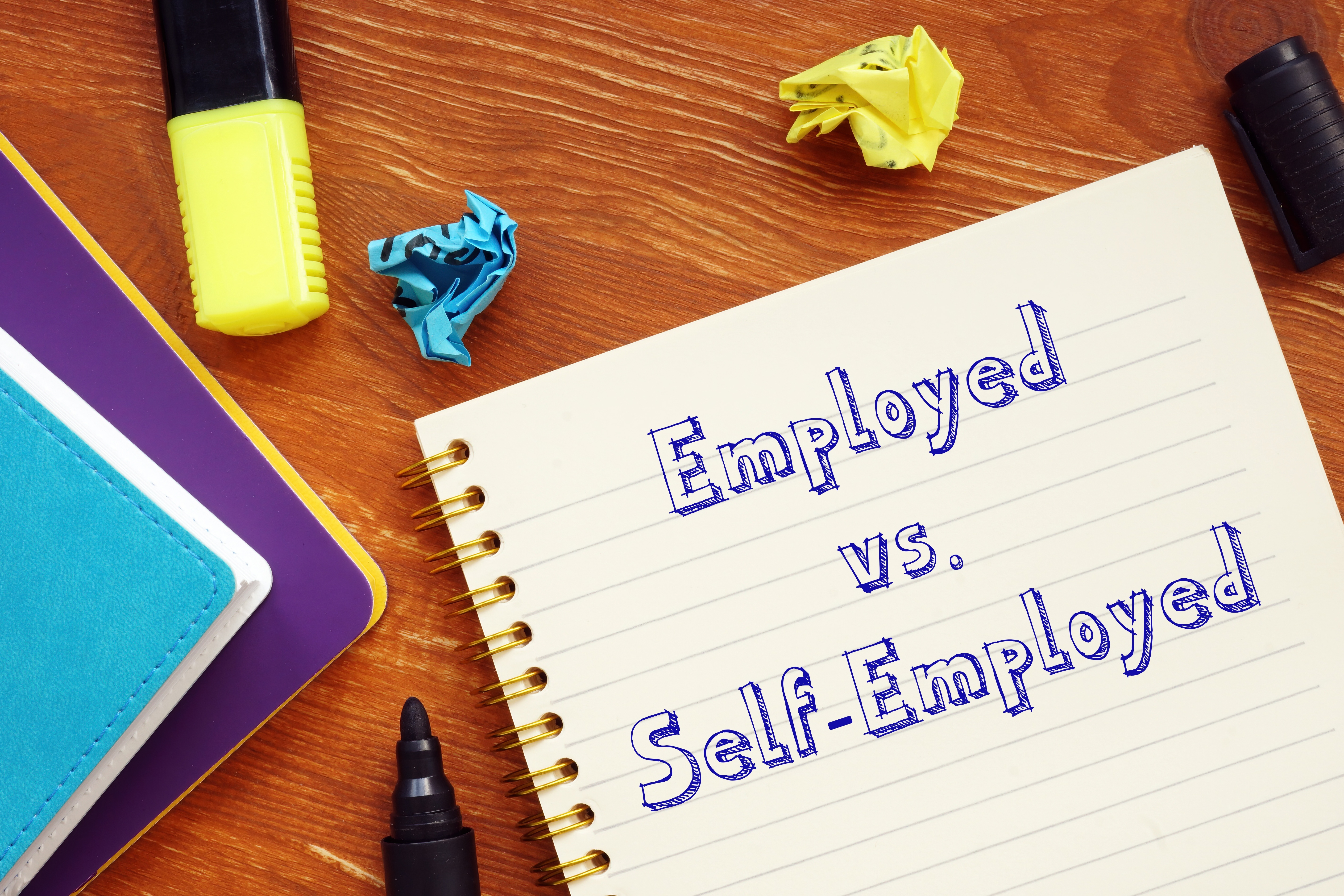
There is a longstanding argument about the benefits or negatives of being self-employed over direct employment. This extends beyond the construction industry, into all facets of the world of work. There has been a significant rise in those registered as self-employed; between 2001 and 2017, self-employment in the UK rose from 3.3 million to 4.8 million. But there is no right or wrong answer – whether you become self-employed or not, depends on your personal preference, your professional situation, and what you want out of a career.
Nevertheless, it is important to have the facts and figures when you’re preparing to get out into the world of work. The nature of your working status will change your lifestyle, your expectations and responsibilities; it will impact the taxes you pay, your paid leave, and the opportunities you have for professional development. Below we have listed some of the pros and cons of being either self-employed or employed, so that you can move forward with a clearer vision of your professional route.
Pros of Self-Employment
Being your own boss
The headline for those self-employed workers is that it gives you autonomy over your working life. Everything from the hours you work, how much you earn, and the kind of work you do, can be regulated by yourself. Naturally, this kind of freedom comes with its own responsibilities and challenges. But if you’re looking for flexibility above all else, without having to operate within the confines of a larger company, then this model might be for you.
You reap your own rewards
Everybody wants to see the benefits of their own hard work, and being self-employed means exactly this. Running your own business in the construction industry can be incredibly financially rewarding; you take out what you put in. Working hard for other people may not be as satisfying and personally motivating as earning money for yourself, and seeing your business skills go from strength to strength. Working for an employer might not offer the same potential for the same growth, though it does undoubtedly have its own benefits.
Professional flexibility
Nobody understands your own strengths and limitations better than you do yourself, which is why as a self-employed worker you don’t have to be restricted in your working opportunities – and that means a bigger financial reward for yourself.
An employer might underestimate you, and even limit you to one job at a time, when you know that you could be stretching yourself. When self-employed, you can challenge yourself to achieve tasks to the best of your abilities, and have full control over your ongoing projects. You negotiate the contract you have with each individual customer, and base your progress on this – full autonomy, and maximum opportunity.
Personal development
Becoming self-employed is an undeniable challenge. But some of the things which make self-employment seem less appealing, like the added responsibilities, might ultimately themselves be positives. The skills you learn as an individual could be ones you’d never learn in any other capacity; things like self-motivation, self-discipline, planning, resourcefulness, and thinking on your toes. You need to generate and pursue your own opportunities – but this doesn’t need to sound daunting or high-pressured. For certain people with the capacity to do well, this could be the perfect lifestyle.
Pros of Employment
Financial security
Despite the obvious freedoms of being self-employed, there are some inevitable downsides. The obvious benefits of working for a wider company is financial stability, and the legal perks that go with being a regular employee. You are paid a regular wage, given consistent work, and awarded a job security which is far more difficult to achieve as a self-employed worker. In addition to this, taxation is also covered by being employed. That is, you pay it automatically through PAYE, meaning you can enjoy your earnings while those who are self-employed have to stay on top of how much they owe to the taxman.
Regular work
Working for an employer means that much of the responsibility for finding work rests with those above. You enjoy the reputation or influence of a larger marketed entity, meaning that your opportunities won’t fizzle out (as long as the company itself is still trading of course). You can without having to worry about marketing yourself, broadening your customer base, or networking. The big company does that work for you.For those who are self-employed, finding work is itself a huge part of the challenge; working for an employer, however, you can simply turn up, do the job, and leave your work at the doorstep.
You get to enjoy employment rights
Employment rights are legal perks which come as a result of being employed, as opposed to being self-employed. That is, the right to earn a national living wage, statutory paid leave, a minimum level of paid holiday and rest breaks, and sick pay. Not only does it offer you rights which help you financially, but also legally: you have a certain amount of protection in the workplace against things like unlawful discrimination, or protection against whistleblowing.
As a self-employed person, you would of course be entitled to health and safety and discrimination rights; but other rights are set out by terms of the contract you have with your individual clients, so it can be a lot to think about.
But regardless of the route you choose through the construction industry, it will still be a fulfilling and rewarding one. The forthcoming years are going to be successful years for tradespeople, and will see demand rising, opportunities increasing, and work plentiful. Whatever your career ambitions – whether you want to impress potential employers or be your own boss – Access Training can help to make them a reality.
Learn your trade. Get qualified. Make it happen.